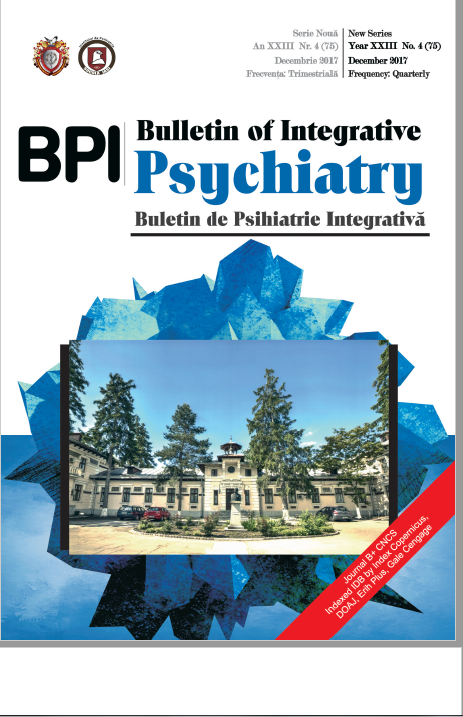The influence of testosterone on psychosocial factors
The influence of testosterone on psychosocial factors
Author(s): Mihai Gabriel Alin ȘUIU APOSTOL, Oana Boantă, Mihnea ManeaSubject(s): Psychology, Social psychology and group interaction, Cognitive Psychology, Behaviorism
Published by: Editura Sedcom Libris Iasi
Keywords: dominant behaviour; aromatase reaction; orbitofrontal cortex;
Summary/Abstract: Testosterone is a hormonal modulator of aggression. The testosterone is the end product of the pituitary-gonadal-hypothalamic axis (PGH) and it acts through of a complex of neuroendocrinological processes. It intervenes in defining the social status of the individual, creating the dominant behavior. testosterone action is accomplished by the modulation of certain neural pathways and by the aromatase reaction. The increased level of testosterone can cause aggressive reactions to social challenges. The mechanism of action of this hormone in the aggressive behavior is achieved through the orbitofrontal cortex (OFC). Testosterone isn't responsible of all the aggression forms, but can determine aggressive reactions to social challenges. The OFC activity is associated with the control of impulsivity and it is a self regulator system that integrates emotions, motivation, cognition in an adequate behavior based on context. Hormones don't directly influence the behavior, the induce chemical changes in certain neurons, impacting the behavior by modulating certain neuronal pathways.
Journal: Buletin de Psihiatrie Integrativa
- Issue Year: 75/2017
- Issue No: 4
- Page Range: 53-57
- Page Count: 5
- Language: English

